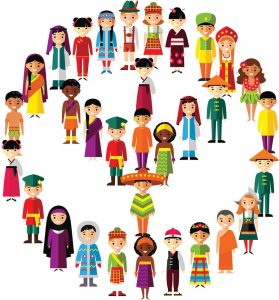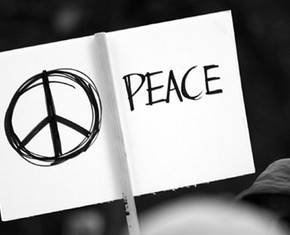The views expressed in our content reflect individual perspectives and do not represent the authoritative views of the Baha'i Faith.
How can we begin building a culture of unity and oneness in our world?
To move from a consciousness of duality, where many cultures exist in conflict, to a consciousness of oneness, where many cultures exist in harmony, requires a shift of awareness toward seeing the whole first, before we get attracted to or overwhelmed by any of its component parts. This means remembering always that reality is one; and requires that we adopt a consciousness of oneness—which will lead to building a culture of oneness.
After many millennia of living in difficulty, dissension, and discord, humanity is now rediscovering a deep-seated desire to live in this world as one. A culture of oneness means living in unity within our multiplicity, honoring our diversity within our common heritage as human beings, and safeguarding our differences while recognizing we are more alike than unalike.
This requires a change of consciousness, a spiritual transformation that frees us from attachment to inherited assumptions and habits that no longer fit the needs of the day. It means re-conceptualizing everything we think we know anything about: the way we see the world, the way we understand reality, the way we understand human identity, the way we relate to one another and the Earth we share, the way we understand the nature of conflict, the way we envision the journey of life, and, perhaps most of all, the way we see the very nature and purpose of divinity.
 These shifts have already begun to happen, on a global scale in both secular and sacred settings. A movement is underway, gaining momentum every minute. It encircles the globe, engaging the hearts of people everywhere, and renews the entire world, bringing the consciousness of oneness into full awareness. Faith communities, social justice organizations, and other movements are all working on parallel paths to achieve the same end.
These shifts have already begun to happen, on a global scale in both secular and sacred settings. A movement is underway, gaining momentum every minute. It encircles the globe, engaging the hearts of people everywhere, and renews the entire world, bringing the consciousness of oneness into full awareness. Faith communities, social justice organizations, and other movements are all working on parallel paths to achieve the same end.
You can trace the genesis of what has become a multi-faceted global movement toward building a culture of oneness back to the origin of the Baha’i Faith in the mid-19th century. There we find the principle of the oneness of humanity at the center of a supporting set of interconnected spiritual principles such as racial unity, gender equality, economic equity, scientific and religious harmony, environmental stewardship, and others–all necessary to achieve social justice and world unity. These represent the consummation of human evolution, an all-embracing vision of humanity’s future. As Shoghi Effendi explained:
The principle of the Oneness of Mankind–the pivot round which all the teachings of Baha’u’llah revolve—is no mere outburst of ignorant emotionalism or an expression of vague and pious hope … Its implications are deeper, its claims greater than any which the Prophets of old were allowed to advance. Its message … concerns itself primarily with the nature of those essential relationships that must bind all the states and nations as members of one human family. It does not constitute merely the enunciation of an ideal, but … implies an organic change in the structure of present-day society, a change such as the world has not yet experienced … [This principle] carries with it no more and no less than a solemn assertion that attainment to this final stage in this stupendous evolution is not only necessary but inevitable … and that nothing short of a power that is born of God can succeed in establishing it. – The World Order of Baha’u’llah, pp. 42-43.
Like all movements, this won’t be completed overnight—but these unifying spiritual principles of our time are already becoming almost second nature, as we slowly but surely take on the wider identity of world citizens.
One recent sign of this effort to build a culture of oneness on a global scale was the Women’s March in January of this year. Taking place simultaneously in nearly 40 countries on the same day, a deep-seated desire to live in this world as one was re-discovered as the voice of oneness arose across seven continents, in solidarity, merging all the human rights causes of the past centuries into one global movement for our time.
Our challenge: to disregard the fleeting notions of the day, and instead recognize their sharp contrast to the overriding spiritual forces of our time. These forces compel us toward putting into action the principles the world needs for lasting collective security. They will lead to the realization of oneness, which incorporates global justice, equity, and unity in humanity’s inevitable march toward world peace.
















Comments
Sign in or create an account
Continue with Googleor